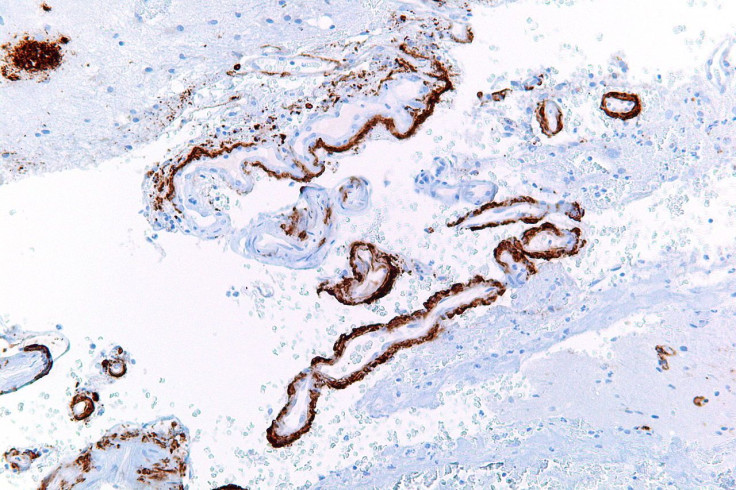Targretin A Flop: Potential Alzheimer's Drug Fails In Retrial

A team of researchers say they tried and failed to replicate the breakthrough result of a drug that reversed amyloid buildup in Alzheimer's, a disease which eventually leads to cognitive deterioration.
The original study was published online last February in the journal Science, and involved a team of esteemed researchers who administered bexarotene, marketed as Targretin, to mice and saw a rapid decline of beta amyloid plaques, proteins associated with Alzheimer's disease that accumulate in the brain.
However, when third-party researchers who were previously suspicious of the successful experimental repeated the drug study, the results failed.
"The drug has no impact on plaque burden in three strains that exhibit Aβ amyloidosis," according to group. "We have failed to support earlier findings by Cramer et al that Targretin is efficacious in reducing plaque burden in transgenic mouse models of cerebral Aβ deposition."
The original study was performed by researchers from medical schools at Case Western Reserve University, Washington University, New York University, and University of Pennsylvania. Their findings had also uncovered the drug was capable of reversing memory loss and cognitive decline.
"We were surprised and excited, even stunned, when we first saw these results presented at a small conference," said Sangram Sisodia, who co-authored the new report and professor of neurosciences at the University of Chicago. "The mechanism of action made some sense, but the assertion that they could reduce the areas of plaque by 50 percent within three days, and by 75 percent in two weeks, seemed too good to be true."
Results from the replicated studies will be published as three "technical comments" in the May 24 issue of Science. The authors said they extensively studied and retried the 2012 experiment and found no reduction in amyloid plaque count after the treatment.
"We all went back to our labs and tried to confirm these promising findings," Sisodia added. "We repeated the initial experiments - a standard process in science. Combined results are really important in this field. None of us found anything like what they described in the 2012 paper."
They reported the bexarotene drug showed no effect on the plaque count in three various strains of mice.
"Anecdotally, we have all heard that physicians are treating their Alzheimer's patients with bexarotene, a cancer drug with severe side effects," said Robert Vassar, co-author and professor of cell and molecular biology at Northwestern University Feinberg School of Medicine. "This practice should be ended immediately, given the failure of three independent research groups to replicate the plaque-lowering effects of bexarotene."
Targretin's side effects include abnormal levels of blood lipids, pancreatitis, headaches, fatigue, weight gain, and depression, among others. The capsules are used to treat skin problems for people with cutaneous T-cell lymphoma.
Alzheimer's affects nearly 5.3 million people in the United States and is the most common cause of dementia.



























